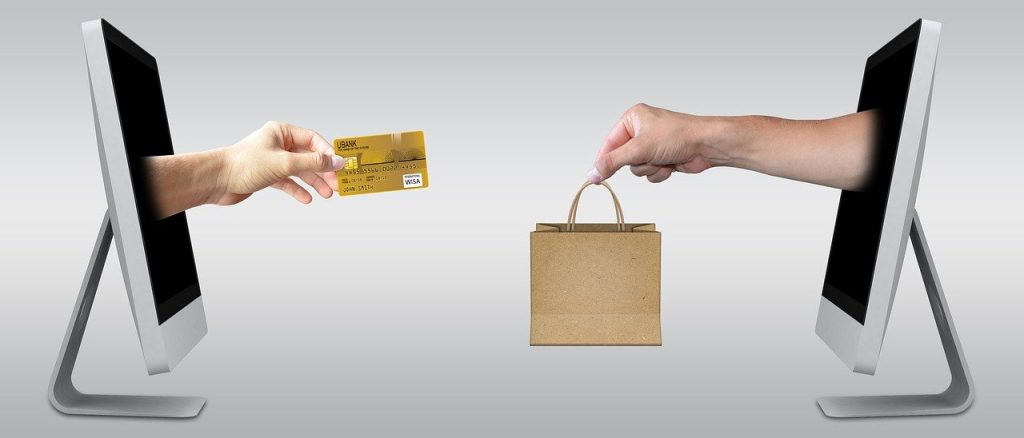Undoubtedly, Covid-19 has had a massive impact on every aspect of our lives. Unfortunately, it continues to do so.
The most distinguished change has been in our shopping behavior. More people are getting used to shopping online as the only alternative to their buying habits. Retailers quickly realized that it would be literally impossible to continue their business operations without adapting to new conditions.
As a result, everyone now relies on the internet and different online platforms more than ever before. We are yet to see if Covid-19 has changed e-commerce for good, or this is just a temporary situation as we move forward to recovery, but one thing is certain – people are more comfortable than ever shopping online.
How COVID-19 has Changed E-Commerce lately
Everyone is pretty much aware of the disruption the pandemic has brought to us. It has affected our social and working habits, physical and mental health, and even the way we organize our businesses. On top of it, there is the underlying uncertainty of how we’ll be able to go back to normal once it’s over. But the undeniable fact is that it seems like everything is moving fast forward toward compulsory digitalization. From ordinary consumers to different industries, everyone is looking for appropriate e-commerce solutions. However, the impact this pandemic has is not the same for everyone.
Countries respond differently
The way we are experiencing the situation on a global level is not exactly the same in all countries. While most people worldwide go online to make purchases and do business, some react differently. Countries with developed economies have fewer issues shifting toward the new digital model, primarily because people there are used to the model of online shopping. But, it’s a fundamental shift for third-world countries that requires a tremendous effort so that people can continue their day-to-day routines. Nevertheless, e-commerce is growing faster than ever, even in countries that have already been using this model for a long time.
Many industries are changing
On one side, many industries are moving to a different online business model for several reasons:
- The convenience of online shopping is here to stay
- It reduces the risk of similar problems in future
- Large investments in e-commerce should not be abandoned once the pandemic is over
- Different logistics solutions that are now in use may prove to be an advantage over competitors
- An increasing number of potential online customers is not to be underestimated
On the other side, we are seeing the effect of Covid-19 on working habits. Most industries, where it is possible, are switching to working from homes. People now use their homes as an office and increasingly utilize different communication solutions to organize better.

Small businesses are evolving
At the beginning of the pandemic, many small businesses struggled to stay on the market, especially brick and mortar businesses. Some of them have even closed their operations, both temporarily and permanently. This is particularly notable for those who have not been able to switch to online sales and e-commerce channels. The situation is pretty simple, ruthless, and straightforward: you either adapt, or you need to put everything on hold. However, those who were prepared or already functioning online are experiencing an exponential increase in online sales. The most apparent effect is focusing on customer relationships, service, and various shopping and shipping models. And some e-commerce platforms can help businesses step up their game in this respect. For this reason, implementing WooCommerce is something you should consider since it’s among the most promising business models.

Large businesses are growing stronger
The entire situation is less troubling for large companies. Not only have they experienced the least amount of drawbacks, but it also seems that this situation suits them. The increased trust they receive, combined with capabilities to deliver, is growing them even stronger. If you look at the number of investments they are placing in different strategies and solutions, it may indicate that e-commerce has a promising perspective in the future. For example, besides e-commerce, they invest in and rely heavily on different communication platforms like Viber, WhatsApp, Slack, and Zoom. And they use various online software solutions to improve the remote organization of their business operations, now, even more than before.
Logistics and transportation are changing
Needless to say, this was a challenging period for logistics and transportation. With all the restrictions that limited the physical presence, it was hard to operate, especially on a global level. However, the surge in online orders allows them to compromise once the restrictions are loose. Some of them are even investing in finding new transporting solutions and increasing the number of employees, all to scale up with the demand. One example is alternative delivery and pickup methods. While it’s still in the early stage, we can expect to see an increase in the use of drones and automated vehicles in the future. However, not everyone is willing to do this since it requires a significant investment.

Covid-19 increases the significance of social media
As expected, due to distancing and all the restrictions, more people turn to social media. And these are not only ordinary people who want to stay in touch with their friends and families but business people as well. In general, it is an excellent way to build quality relationships with customers, and its significance will probably grow as time passes. Also, this gives businesses a tremendou cs opportunity to study consumer behavior on a deeper level. When you have limited practical options to advertize outside online channels, social media is the principal tool to improve your brand visibility. And numerous studies show that even after the Covid-19 situation is over, most people will keep their online habits.

If the changes are here to stay, we are yet to see
We may not be able to precisely predict all the outcomes of the situation, but some changes will stick around. If COVID-19 has changed e-commerce forever, it’s time to consider how to adapt and where to strive in the future. In essence, it will be hard, if not impossible, to go back to old habits. This, however, doesn’t mean we will not be free to go to shopping malls and pick commodities first hand. But it does mean many will choose to continue to purchase from the comfort of their homes. Some out of precaution, some out of habit. In general, if you own a business, this might be an excellent opportunity to improve your business operations and turn to consumers more than before.
Have a question?
Contact our CEO Elena if you want to know more. She'll be happy to help you!
Contact Elena